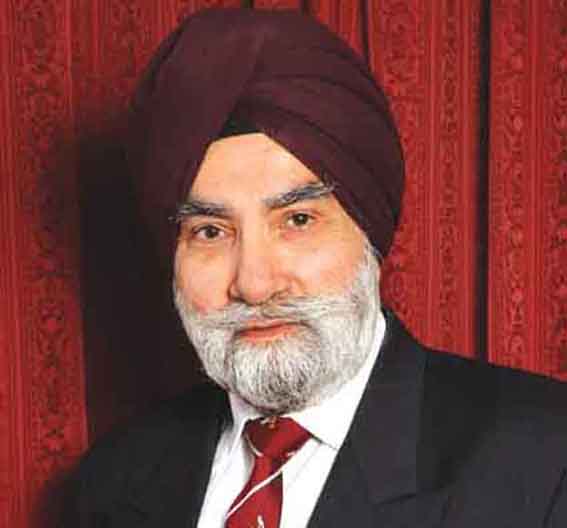Panthic Accountability of Sikh British MPs

A Sikh has to fulfil his Panthic obligations as a member of the corporate entity of the Panth (Sikh Reht Maryada)
It is true that the presence of identity Sikhs in the Parliament makes the point that Sikhs do have a place in the British plural society. They are an important minority in British diversity united by shared British and Sikh values. They have own theo-cultural identity, heritage and identity which also link them to their roots in Panjab, divided between India and Pakistan since 1947.
For these reasons, in addition to national and local issues concerning all communities, there is an expectation that they would also raise specific issues of concern to British Sikhs. In any case, Sikh issues have always been raised by non-Sikh MPs with sizeable number of Sikh constituents. Southall MP, late Sydney Bidwell, was an outstanding example. His publication by the Sikh Missionary Society UK, The Turban Victory, is a good source of reference for Sikh turban related issues.
In due course, in order to brief MPs, UK Sikh issues began to be prioritised by the Sikhs, first, as The Sikh Agenda and later, from 2015, as The Sikh Manifesto. Electronic versions of successive Sikh Manifestos are available on the Sikh Missionary Society Website (see at footnote). The first Sikh Manifesto of 2015 was especially well-received as a blueprint by diaspora Sikhs and as a fair summary of Sikh tradition and legitimate UK Sikh issues with reference to Sikh ideology, identity and Anglo-Sikh aspects.
There is an expectation that MPs would use the Sikh Manifesto as a source of reference regarding Sikh concerns. British Sikhs are likely to measure performance of MPs under these headings. Naturally, British Sikh expectation is that Sikh identity MPs would raise Sikh issues even more effectively due to their Sikh background and regular dialogue with local Sangat.
High profile Sikhs need to understand that Sikhi values and temporal objectives would help and not hinder their careers and stature in the wider society. That, to seek Panth di Chardhi Kalaa is compatible with Sarbat da Bhalaa, the well-being of all and creation of a just and fair human society.
One view is that in 1984, the Sikh president of India could have served Sikh Qaum and country (India) better with that realisation at a critical juncture in Sikh and Indian history. If required, he should have welcomed any personal sacrifice in Sikhi spirit. Later, the Sikh Prime Minister of India could have done even more for the Panth while also re-affirming the original democratic spirit of the Indian Constitution.
A related point is the question of lead in the Panth. Guru Nanak Jot-Jugat (Guiding Light and Methodology) was in one Guru-person until Guru Gobind Singh Ji placed It in Guru Granth and collective Guru Panth. The Panthic Manifesto in Guru Granth Sahib is interpreted collectively by the Guru Panth. Thus guided, Sikhs can lead as individuals in own spheres and also as a collective when assembled as the Panth before Sri Akal Takht Sahib.
So, Sikhs will no longer seek some elusive super individual as leader when this concept is understood. Sikhs do not need a leader because they always had the Guru Granth-Panth lead. The 18 Century Khalsa understood this concept and remained invincible.
British Sikhs expect Panthic accountability from Sikh MPs in addition to representation of local issues and participation in debates about national and international issues.
Gurmukh Singh OBE
Principal Civil Servant retd (UK)
(Sikh ideology and identity articles at : https://www.sikhmissionarysociety.org/ )